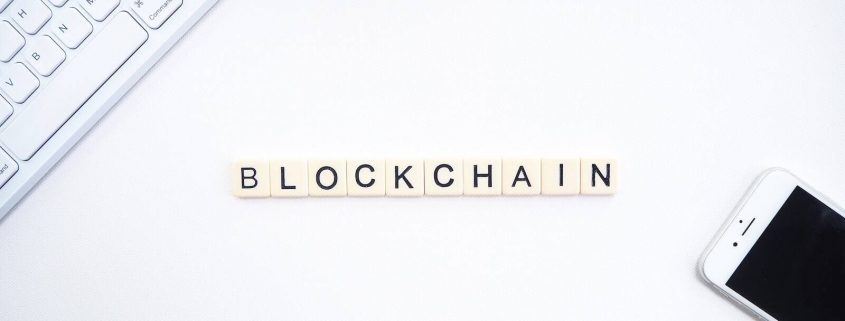What is blockchain?
The basic idea is that digital information can be distributed, but not copied. No one can change this data, but it can be tracked.
It is time stamped records of data managed by computers with no central authority.
According to Investopedia, the ‘blocks’ on the blockchain are made up of digital pieces of information which have 3 parts: storing information about transactions (amount, date and time), who is participating in these transactions (recorded without any identifying information and using a digital signature, like a username, stores information that distinguishes them from other blocks (each block has a unique code or algorithm).
One block on the Bitcoin blockchain can store 1 MB of data.
If a transaction occurs, this will be packaged in the block with the transaction information. Then, the transaction must be verified. Afterwards, the transaction’s numerical amount, the digital signature of the buyer and digital signature of the seller is stored in a block. The block is then given a hash.
Why would businesses adopt it?
Security – after a block has been added to the blockchain, it is very difficult to change the information in the block. If a hacker wanted to change a single block, they would have to change every single block after it on the blockchain. This would take a huge amount of work and computer power. Therefore, it is very hard to edit or delete.
Time – digital information can be recorded, distributed but not edited.
Who is interested in it?
When I think of blockchain I immediately go to financial aspects of the technology. This is not its only application. It can be used for transactions other than financial. For example, votes for a candidate, property exchanges or storing medical records. If these have a private key, it could only be accessed by certain individuals.
Some industries which are currently deploying blockchain:
- Healthcare
- Property
- Travel
- Energy
- Advertising
Areas which blockchain could be used:
- Smart contracts
- Supply chain auditing
- File storage
- Intellectual property
- Data management
Blockchain as a service (cloud-based solutions which help businesses create blockchain without starting from scratch)
- Amazon Managed Blockchain
- Azure Blockchain Workbench
- IBM Blockchain
- Oracle Blockchain Applications Cloud
- SAP Cloud Platform Blockchain
Should you consider blockchain?
Blockchain has been forecasted to have great potential. Privacy, security, fewer human errors and reduced cost are all experienced from blockchain.
There is a technology cost but minimal to no transaction cost. Additionally, the confidentiality of blockchain has allowed previous illegal trading and transactions.
Does not have to be an in-house solution to use blockchain. This responsibility could be outsourced.
How Blockchain as a Service Works
This is the third-party creation and control of cloud-based systems for organisations who are starting to implement blockchain.
The idea is based on the model of software-as-a-service security, hosting requirements and data security are the support activities generally offered by this service.
Microsoft and Amazon are two big names who have introduced blockchain-as-a-service.
Numbers for blockchain this year compared to previous years
- In 2020 of the respondents who mentioned that they were going to deploy emerging technologies in the future, 5% of respondents are planning on adopting Blockchain.
- In 2019 only one company in the research group was actively using Blockchain.
- In 2018, no businesses were actively using the technology, only 5% were planning Blockchain deployment in the next 12 month and 35% had a longer-term interest. 60.6% had no interest in Blockchain adoption within their organisation.
Blockchain Glossary
Blockchain = A blockchain is, in the simplest of terms, a time-stamped series of immutable records of data that is managed by a cluster of computers not owned by any single entity. Each of these blocks of data (i.e. block) is secured and bound to each other using cryptographic principles (i.e. chain). Tech Crunch
Block = digital pieces of information.
Bitcoin = a digital currency operated by a decentralised authority.
Cryptocurrency = a digital or virtual currency that is secured by cryptography, which makes it nearly impossible to counterfeit or double-spend. Many cryptocurrencies are decentralised networks based on blockchain technology. Investopedia.
Hash = A hash is a function that converts an input of letters and numbers into an encrypted output of a fixed length. A hash is created using an algorithm and is essential to blockchain management in cryptocurrency. Investopedia.
Digital information = machine language which is data stored in zeros and ones. Information that is in digital, electronic form and is stored, manipulated and displayed by computational tools.
Distributed database = In a traditional database config all storage devices are attached to the same server, often because they are in the same physical location. A distributed database works as a single database system, even though the database hardware is run by by many devices in different locations. Techopedia.
Immutable = unchanging over time or unable to be changed.
Digital signature = A digital signature is the electronic equivalent of a person’s physical signature. It is also a guarantee that information has not been modified, as if it were protected by a tamper-proof seal that is broken if the contents were altered. PC Mag.
Blockchain as a service = the third-party creation and management of cloud-based networks for companies in the business of building blockchain applications. Investopedia.











Leave a Reply
Want to join the discussion?Feel free to contribute!